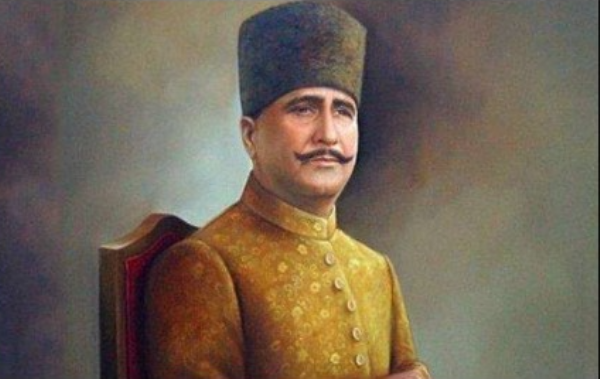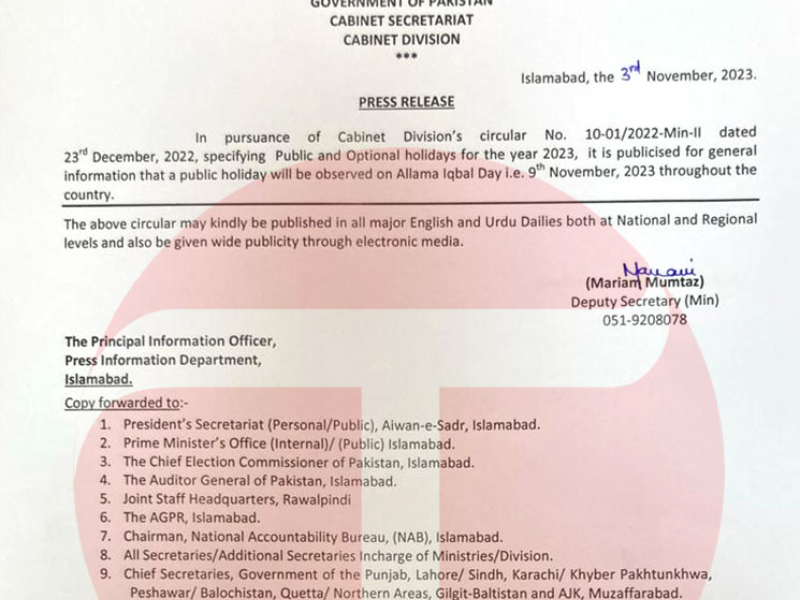Muhammad Iqbal: Composer of `Sare Jahaan Se Achcha’ stood for separate Muslim nation
10 Nov 2023 11:49:31
November 9 is observed as `Iqbal Day’ in Pakistan. Who is this Iqbal? What is his relation with Pakistan? Why is he being held in such high esteem in Pakistan? In reality, Iqbal is a very common name in Muslim community. But this Iqbal is very significant for Pakistan. Allama Muhammad Iqbal is considered as ‘spiritual guru’ of Pakistan.

For Indians, Allama Muhmmad Iqbal is the same person who composed the famous song - `Sare Jahaan Se Achcha’. Indians remember him whenever this song is played. Such is the situation that India has no other patriotic songs. This happens because we have been taught to see Iqbal as an icon of Hindu-Muslim unity. Iqbal is always projected as a model of `Nehruvian Secularism’. He is portrayed as a patriotic poet. Because of political and ideological patronage, ‘Saare Jahaan Se Achcha’ continues to be played and sung in all official government functions, including defence programmes.
However, Iqbal has another side as well. The side, which seculars always suppressed. The side, which is never told to school going children. The side, which reveals that Iqbal was a staunch supporter of a separate nation for Muslims in India. Iqbal was not merely closely associated with Muslim League, but also headed it at one point. Muslim League, eventually, demanded and forced partition of India, giving birth to Pakistan. But seeds of Pakistan were sown by Iqbal in his 1930 Allahabad session of Muslim League. It is obvious for Pakistan to observe “Iqbal Day’ on his birth anniversary to show respect for him. But that should not be the case in India.
Indians must remember that as president of Muslim League, Iqbal put forward a theory that an autonomous state was necessary for Muslims. He stressed for a separate state for Muslims if Muslim League demands were not met. It is not a coincidence that Muslim League, eventually, officially upheld the idea of a separate state in North-Western region, which is now known as Pakistan. Iqbal’s 1930 speech in Allahabad convention of Muslim League indicates his distinctive Muslim mindset and attitude. As an Islamic, he did not believe in national boundaries. He strongly believed in the spread of Islam in the entire world. He deeply believed that Muslims are born to rule.
Let’s first think of the story of `Saare Jahaan Se Achcha’, which is very rarely told. Very few people know about ‘Tarana-e-Milli’, Urdu poem composed by Muhmmad Iqbal in 1910. The poem proclaims that Islam is the religion of the world. It recognized the Muslims of the world as part of a single nation. It underlined that the geographical boundaries could not prevent Muslims from being a single nation. It told the world that Prophet Muhammad was the leader of this nation. The composition indicates how Muhmmad Iqbal was a diehard Muslim by nature.

The origins of `Saare Jahaan Se Achcha’ can be clearly traced out in `Tarana-e-Milli’. It was written using the same metre and rhyme scheme as ‘Sare Jahaan Se Achcha’. Sixth stanza of the ‘Tarana-e-Milli’ says, “Cīn o-ʿArab hamārā, Hindūstāṉ hamārā, Muslim haiṉ ham, wat̤an hai sārā jahāṉ hamārā”. It was published in 1910 while ‘Saare Jahaan Se Achcha’ was published in 1931 with some alterations and modifications. The composition in 1910 suggests that Allah has given Muslims right to rule over the world, irrespective of physical and national boundaries.
Iqbal has also composed poems in Persian language to spread his appeal to the entire Islamic world. Critics argue that he composed in Persian language as he wanted to reach out to entire Muslim world and did not want to restrict himself to India only.
Iqbal’s 1930 speech in Allahabad convention of Muslim League adequately indicates his line of thinking. He had his own analysis of Islam and Bharat. During his speech, he compared Islam with Christianity, to stress how his own religion was better than Christianity. His speech proves that Iqbal was a staunch supporter of a single self-governed state comprising Punjab, North-West Frontier Province, Sind and Balochistan under British Empire or without it. He was of the opinion that the formation of a consolidated North-West Indian Muslim State appears to be the final destiny of the Muslims, at least of North-West India.
In his presidential address, Iqbal made several demands. He did not hesitate to say that if the demands were not met, the Muslims of India should prepare for an “Independent and concerted political action”. He went on to say, “If these demands are not agreed to, then a question of very great and far-reaching importance will arise for the community. Then, the moment for independent and concerted political action by the Muslims of India. If you are at all serious about your ideals and aspirations, you must be ready for such an action”.
Calling India ‘the greatest Muslim country in the world’, Iqbal claimed in a 1930 speech that the idea of a separate Muslim nation should not raise the alarm either for the Hindus or for the British.
Speaking about the significance of political action in the future, he said, “Our disorganized condition has already confused political issues vital to the life of the community. I am not hopeless of an inter-communal understanding. Still, I cannot conceal from you the feeling that in the near future, our community may be called upon to adopt an independent line of action to cope with the present crisis. And an independent line of political action, in such a crisis, is possible only to a determined people, possessing a will focussed by a single purpose.”
The above speech stands as a testimony of Iqbal’s ideology and his loyalty to his religion. However, he is still projected as an icon of Hindu-Muslim unity. Iqbal died in 1938, nine years before independence. But he would have certainly preferred to settle in Pakistan, had he been alive in 1947. Unfortunately, Indians have been taught to look at Iqbal as asymbol of Hindu-Muslim unity and a great patriotic poet.